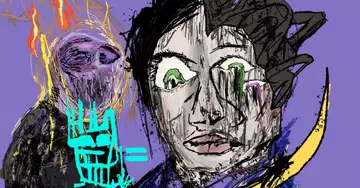"But they, our ancestors, became haughty and stiff-necked and did not obey your commands. They refused to listen to you and did not remember the miracles you did among them. They became stiff-necked and set up a leader in their rebellion to return to their slavery." (Nehemiah 9:16-21)
The genesis block of Bitcoin is historic, not only because it contained the first 50 Bitcoins, but also because it contained a message encrypted in the hash code, "The Times 03/Jan/2009 Chancellor on brink of second bank bailout."
Nathan Thompson is the senior technical editor at Bybit.
This allusion to the 2008 financial crisis by Bitcoin's creator, the pseudonymous Satoshi Nakamoto, is often read as an indirect mission statement: The financial system could be redesigned, money could obey immutable laws written into code, and finances could flow freely. Bitcoin would be decentralized, unchallengeable, and unmanipulable.
However, it seems that instead of creating a trustless and egalitarian digital economy, the crypto industry is plagued by internal strife. We have created a technical version of the old system, where greed for returns has led people into convoluted and dangerous strategies of profit maximization.
That is, without the benefits of power.
The meltdown of TerraUSD (UST) - once the third largest stablecoin by market cap, once famous for offering a 20% annual return on deposits in the Anchor Protocol, and once expected to make many people very rich - seems total. This time, there are no taxpayer bailouts.
The collapse of Terra combined with a consumer price index of 8.3% has led to selling in the crypto markets. Bitcoin slumped and is now below $30,000, with alternative coins faring no better as investors either sold into BTC or shifted into cash.
Due to its algorithmic design, UST's price moves in sync with Terra's own cryptocurrency LUNA. The bank run that unpegged UST from the U.S. dollar also caused the price of LUNA to plummet, falling over 99% in two days to less than one cent. At the beginning of this year, UST and LUNA had a combined market capitalization of $60 billion; now it is less than $7 billion.
The fallout has just begun. There are return aggregators using UST as collateral, and God knows what other complex financial strategies built on UST are now at risk. People have lost all their savings; there are tears and depression.
Do Kwon, the cocky CEO of Terraform Labs, was included in CoinDesk's list of 10 most influential people last year. Like other brilliant tech entrepreneurs, he had cult hero status - people thought UST was one of the most brilliant financial products because it was successful.
How or why UST collapsed is not yet clear. But Kwon made powerful enemies with a plan unveiled earlier this year to make UST one of the world's leading stablecoins by draining liquidity from competing projects on the decentralized financial tool Curve Finance. He made the situation worse by throwing his weight around on Twitter.
For example, Kwon took a multimillion-dollar bet on the price of LUNA, said that rival stablecoin DAI would "die by my hand," and called a critic a scold for someone with diminished mental capacity for pointing out flaws in UST's design.
Not surprisingly, blockchain analysts have already found evidence that UST's collapse was caused in part by sabotage. It appears that an unknown actor dumped $84 million worth of UST exactly one minute after Terraform Labs withdrew capital to fund its new "4pool" on Curve. This contributed to UST's deviation from its direction, triggering an avalanche of panic sales and liquidations.
Today, Kwon and his team are desperately trying to find a solution. Many believe it's beyond salvage, especially since traders will be buying UST long and short all the way back to dollar parity - if they ever get there.
Kwon reminds me of another crypto folk hero, Daniele Sestagalli, the founder of Wonderland Money and a celebrated crypto developer. A series of liquidations and the revelation that his business partner was a convicted criminal led to a complete loss of confidence in his projects. Sestagalli has yet to make a comeback.
The industry would do well to remember Satoshi's founding message: crypto is supposed to make things better. It should provide a way for people to save and grow their capital without having to rely on third-party providers that have failed time and time again - like Do Kwon.
I am not naive enough to think that the lessons we have learned today will lead to a kumbaya situation where the proverbial lions lie down with the lambs. However, we see the strength of Bitcoin and the belief that it and other high value assets will withstand this pressure and that Satoshi's dream will live on as long as they do.

